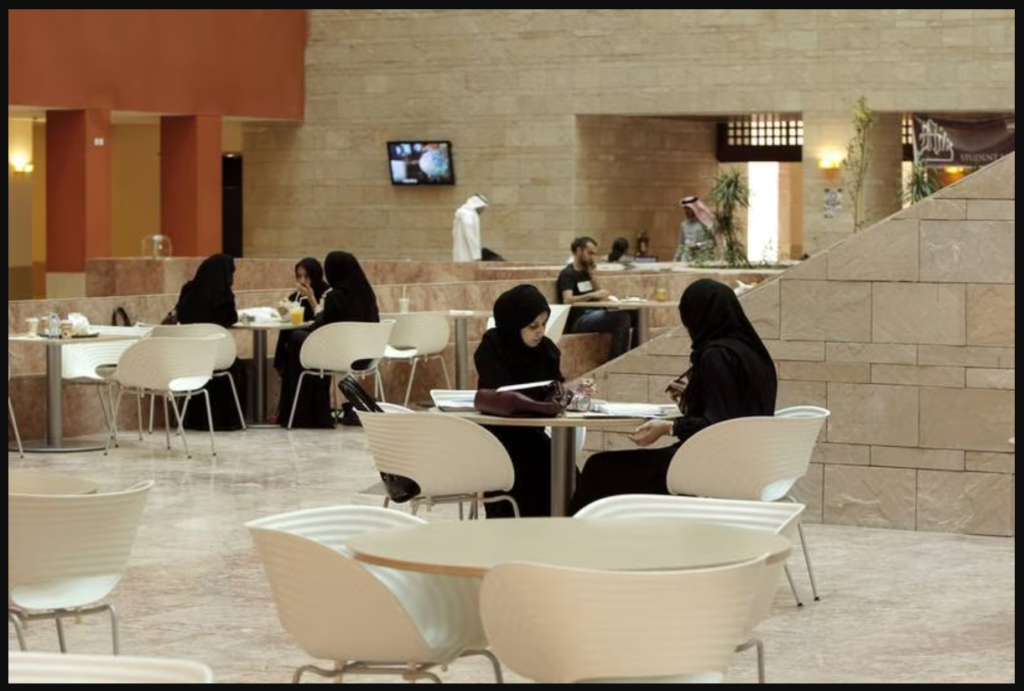Says eliminating barriers to women participation in labour force, digitalisation and green investments will help the region accelerate the pace of growth
The International Monetary Fund has called for boosting inclusive growth in the Middle East and North African economies as successive shocks, as well as global headwinds including climate change and automation compound vulnerabilities in the region.
The call for action by IMF’s managing director, Kristalina Georgieva, follows her meeting with Mena and Pakistan’s ministers of finance and central bank governors during the World Bank and IMF Annual Meetings in Marrakesh.
“A large share of youth is inactive, wide rural/urban disparities continue, and economic opportunities for women remain scarce. Social protection systems are weak and job creation feeble,” Ms Georgieva said on Sunday.
“Recent shocks like the pandemic and Russia’s war in Ukraine, as well as global trends like climate change and automation have compounded these vulnerabilities. The result is rising inequalities and opportunity gaps and a narrower policy space to tackle them.”
Growth in the Mena region is set to slow down this year, driven by the region’s oil-exporting economies, as they maintain crude production caps to stabilise global energy markets, IMF said last week in its Regional Economic Outlook on the Middle East and Central Asia.
The Washington-based fund expects aggregate gross domestic product expansion in the broader ME&CA region to reach 2 per cent this year. The latest estimate is lower than the 3.1 per cent GDP growth projected by the IMF in May.
The broader region, which expanded 5.6 per cent in 2022, is estimated to expand by 3.4 per cent in 2024.
Economic growth in Mena, this year and next, will match that of the wider ME&CA growth of 2 per cent and 3.4 per cent, respectively, the IMF said.
Sharp growth
The fund’s regional economic forecast for Mena is marginally higher than that of the World Bank, which earlier this week forecast a 1.9 per cent gross domestic product expansion in the region this year.
The regional economies expanded by about 6.7 per cent in 2022, driven by sharp growth in the regional oil exporting economies that benefitted from higher crude prices, propped up by Opec production caps, the World Bank said.
To boost inclusive growth, progress will be required on multiple fronts including fostering a vibrant private sector, overhauling social protection systems, removing barriers to women’s participation in the labour force, creating opportunities for youth, as well as boosting green investments, the IMF said.
To develop the region’s private sector will require eliminating barriers preventing new businesses from entering markets and existing small businesses and start-ups from growing in scale.
“In this context, levelling the playing field between public and private firms is a key priority for the region,” the fund said.
Reforming government regulations, enhancing financial inclusion and accelerating digitalisation will “significantly improve economic growth in Mena”.
Guaranteeing citizens equal access to basic services – such as health, education, and social insurance – will also help increase the pace of economic growth.
Revamping education and training systems to address skills mismatches and ensure that the 100 million youth reaching working age in the next 10 years will also support economic momentum in the region, the fund said.
Removing the gender gap as well barriers to female participation in economic activity should be a policy priority in Mena economies that have relatively large pool of highly educated young women.
“The region cannot afford to continue underutilising this human capital,” the IMF said. “Doubling the female labour force participation rate over the next 15 years can improve potential output in a country like Morocco by about 3 per cent.”
The strategy of Job creation through green investment would not only boost growth but also improve inclusiveness, as it is the most “vulnerable who benefit the most from reduced exposure to catastrophic events”, the fund said.
“The transition to renewable energy sources is not only necessary for sustainability reasons but could also be a powerful engine of growth and job creation.”
The region will also need to foster the macroeconomic stability, which is essential for the transformative changes needed in many economies.
The levels of public debt in several Mena markets make them vulnerable to future shocks and they will have to rebuild their fiscal buffers.
“These principles will form the basis of the IMF’s engagement with Mena policymakers and other stakeholders for the years to come,” the IMF said. Structural reforms take time. By working together, we can tackle old and new challenges and build a future for the region grounded in a more sustainable and inclusive model of development.”
Article Credits: The National News
